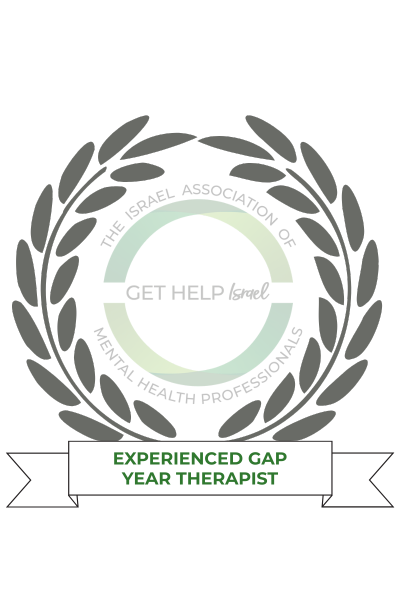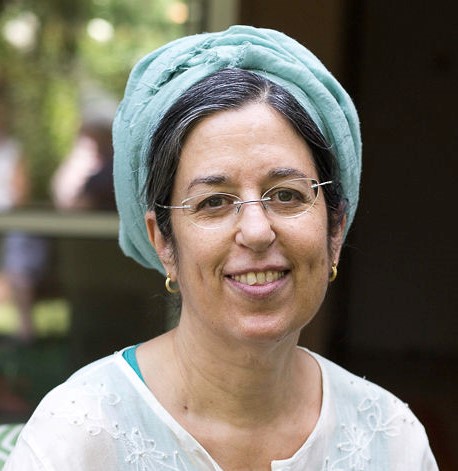Margo Helman
Credentials
Finances
Licensed in Israel
Licensed Abroad
- Mevo Yoram 7
- Jerusalem, 9234607
Margo Helman
 Verified
Verified
Credentials
Clinical Social Worker
MSW
Finances
350-500 NIS
None
Sliding Scale
ABOUT THE THERAPIST
In over 20 years as a therapist, clinical director and supervisor I've learned that a therapy relationship that honours and develops your expertise about yourself and your life is a crucial resource towards more happiness and thriving in your life.
Therapy should be a place where you can talk about anything you choose and a place where you get what you want for your life. Together we’ll create a balance between problem solving and exploration of feelings, and the roots of the problem, depending on your needs and preferences.
The first step to change is facing what is. We’ll get a clear sense of the issues that have brought you to therapy.
Small steps are the key to big change. We’ll go through a process in which you define what you want and identify a next attainable step.
Your relationship with yourself is the key to creating change and getting unstuck. This is good, because your relationship with yourself is the place where you have the most control. We’ll look for the specific ways in which facing your experience – your thoughts, your deeply held opinions and your feelings – can get you unstuck.
We’ll use mindfulness tools to help you gain more self-knowledge, acceptance and peace of mind.
I have over 20 years of providing therapy in private practice and as clinical director of Life's Door/Gisha L'chaim (Tishkofet). I’ve gained successful experience with all kinds of problems and needs.
Online I teach Calm Conflict. Simple, doable tools so that you can bring Mindfulness tools to fights and arguments in precious relationships. Bring healing to the relationship, choose and feel good about your response and get on with your day. For more information: www. margohelman.com
QUALIFICATIONS
MSW
New York University
1998
Degree
MSWEducation
New York UniversityYear of Graduation
1998Years in Practice
25
Registered Social Worker in Israel
9939
LICENSED ABROAD
License Category
Clinical Social WorkerLicense Number
058315 NYADDITIONAL CREDENTIALS
Group Leader April 2016
Bachelors degree in Social Work 1994
Bachelors degree in Psychology 1987
DISTANCE COUNSELING
Online Therapy
PRIMARY SPECIALTIES
Anxiety / Panic
Cancer / Terminal Illness
Grief
Difficult Relationships, Chronic Illness
ADDITIONAL SPECIALTIES
Anger Management
Family Issues
Life Transitions
Mood Disorders
Self-Esteem
Spiritual Concerns
Stress Management
Pain management
CLIENT FOCUS
Population
Adolescents
Adults
Families
Men
Women
Geriatric
Languages Spoken
Hebrew
English
TREATMENT APPROACH
Body-Mind PsychotherapyBody-mind psychotherapy is an integrative approach to psychological treatment that draws from both psychotherapeutic and somatic/body-based approaches. It emphasizes the interconnection between physical, emotional, cognitive and spiritual aspects of being. This approach seeks to help individuals explore how physical sensations, emotions, thoughts and beliefs influence their behavior and well-being. Through this exploration, individuals can gain insight into how the body and mind interact to create patterns of behavior, and how those patterns can be changed to promote healing and wellness.
Existential PsychotherapyExistential psychotherapy is a form of psychotherapy that emphasizes an individual’s subjective experience of existence. It is a philosophical approach to psychotherapy that views the individual as ultimately responsible for creating a meaningful life. This form of psychotherapy helps individuals explore their subjective experiences, understand their personal values and beliefs, find ways to live more authentically, and make meaningful choices. The ultimate goal is to help the individual reach a greater sense of self-awareness and personal fulfillment.
Psychodynamic TherapyPsychodynamic therapy is a form of therapy that focuses on the unconscious mind and how it affects behavior. It works to help people understand and work through past experiences and feelings that may be causing difficulties in the present. This type of therapy encourages individuals to explore their emotions, relationships, and behaviors in order to gain insight into their current difficulties. It can help individuals better understand themselves and their motivations, and gain insight into how past events have impacted their current lives. People tend to develop defense mechanisms when faced with challenges in life. Defense mechanisms may keep painful feelings, memories, and experiences in the unconscious. A few common defense mechanisms include: denial, repression, and rationalization. Psychodynamic therapists encourage people to speak freely about their emotions, desires, and fears. Being open may help uncover vulnerable feelings that have been pushed out of conscious awareness. According to psychodynamic theory, behavior is influenced by unconscious thought. Once painful feelings are brought forth and processed, the defense mechanisms are no longer needed and a person in treatment can start changing unhelpful patterns when coping with life’s challenges.
Mindfulness, Somatic interventions
SERVICES OFFERED
Individual Therapy
Consultation
Couples Therapy
Family Therapy
Home-based Therapy
Workshops/Educating

Therapist's Experience with Gap Year Students
I've had a great deal of experience working with gap year students especially those coping with illness or loss in the family.

 Verified
Verified

